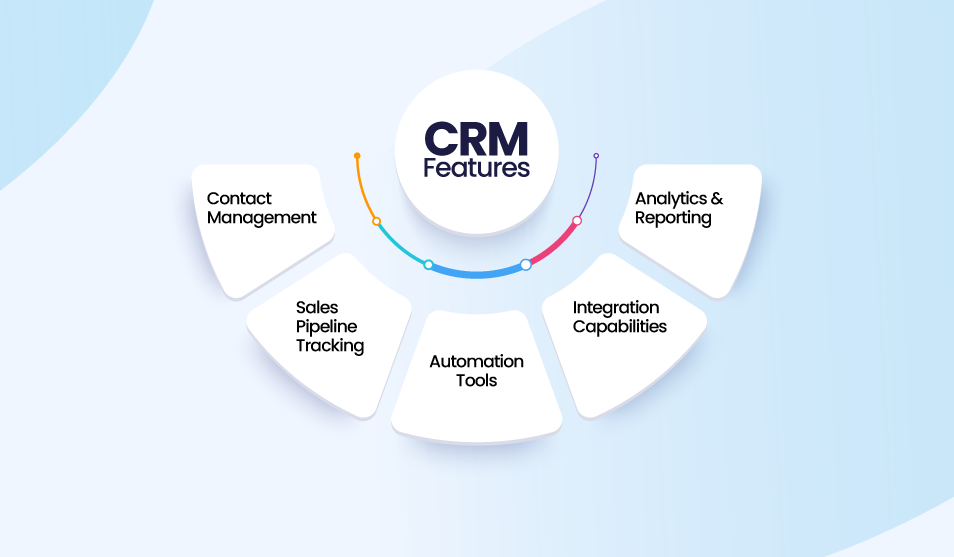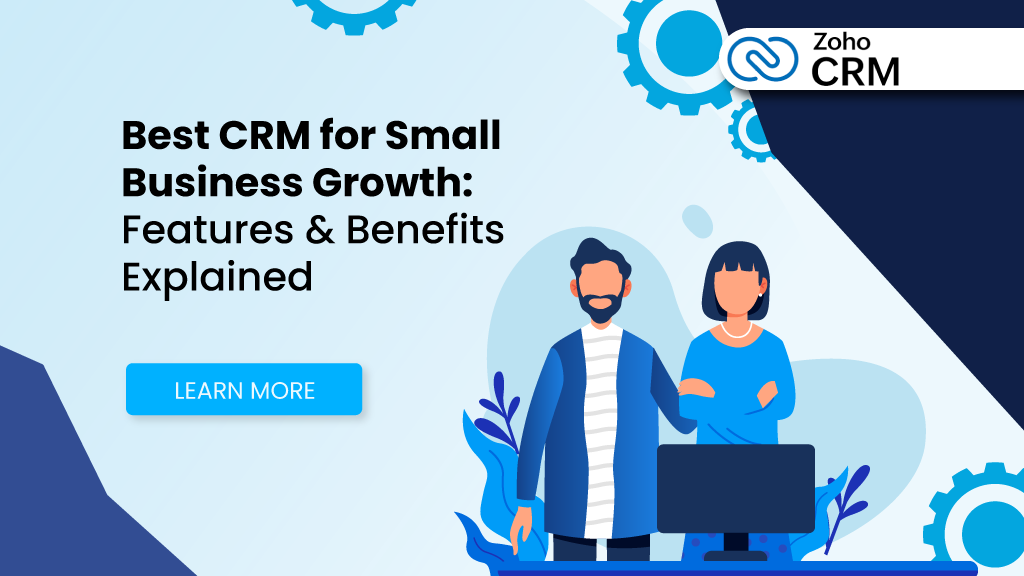Best CRM for small business solutions are designed to simplify the daily chaos that many SMB owners face. Between managing calls, responding to emails, and keeping up with meetings, it’s easy for key details to slip through the cracks.
A promising lead can fade away, or a loyal customer might feel ignored when their purchase history gets buried in spreadsheets. The problem isn’t the effort—it’s the lack of the right system.
With the best CRM for small business, all customer data, communication, and sales activities come together in one place. It automates follow-ups, organizes workflows, and helps small businesses strengthen relationships while growing efficiently.
Why SMBs Need a CRM?
For SMBs, efficiency is survival. Unlike large enterprises with big budgets and specialized teams, smaller businesses need to do more with less. A small business solves this by providing an all-in-one system to manage leads, customers, and communications. Instead of scattered data, everything from emails to purchase history is at your fingertips.
This not only saves time but also improves customer satisfaction—because nothing frustrates a client more than repeating their story every time they interact with your team.
Core Functions of a CRM for Small Business
Contact Management
A strong CRM system stores all customer information in one place, making it easy to access and manage.
It provides a complete, 360-degree view of every interaction, preference, and purchase history.
With this insight, businesses can personalize communication, strengthen relationships, and boost customer satisfaction.
Sales Pipeline Tracking
With visual dashboards, you can easily monitor every stage of your sales pipeline and understand where each deal stands. This visibility helps you identify high-priority leads and focus on opportunities with the greatest potential. By streamlining tracking and follow-ups, you ensure no deal slips through the cracks.

Automation Tools
Automation tools handle routine tasks like sending follow-up emails, updating records, and assigning responsibilities. They help teams stay organized, ensuring that no lead is ever forgotten or delayed.
By reducing repetitive work, automation boosts efficiency and allows teams to focus on meaningful client interactions.
Integration Capabilities
The most effective CRMs offer smooth integration with the tools you already rely on—such as email services, billing platforms, and marketing automation apps.
These connections eliminate manual data entry and ensure your systems work together effortlessly. With seamless integrations, businesses can save time, improve accuracy, and create a more unified customer experience.
Analytics & Reporting
Gain valuable, data-driven insights into customer behavior, sales trends, and marketing performance. Use these insights to identify opportunities, refine strategies, and boost overall business growth. Empower your SMB with informed decisions that turn raw data into measurable results.
Benefits of Using a CRM for Small Business
- Improved Productivity: Teams spend less time searching for data and more time closing sales.
- Better Customer Experience: Personalized service builds loyalty and drives repeat business.
- Scalable Growth: As your SMB expands, a CRM grows with you—no need to overhaul processes.
- Data-Driven Decisions: With reporting tools, you can identify trends and adjust strategies in real-time.
The right CRM does more than just keep your business organized — it streamlines every interaction and process. It helps you understand your customers better, anticipate their needs, and build stronger relationships. Ultimately, it empowers your business to work smarter, make data-driven decisions, and grow faster.
Conclusion
SMBs face enough daily hurdles without losing track of customers and opportunities. A CRM for small business bridges that gap by bringing structure, automation, and insight to every interaction. Whether you’re chasing leads, improving service, or scaling operations, the best CRM for small business ensures you’re equipped to grow smarter, not harder.
If you’re ready to cut through the clutter and give your team the tools they need, consider exploring solutions like Upwise Pro—built to help SMBs thrive in today’s competitive market.


